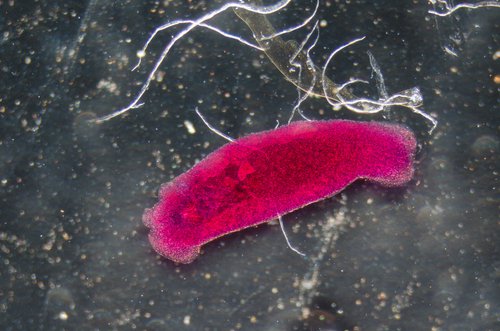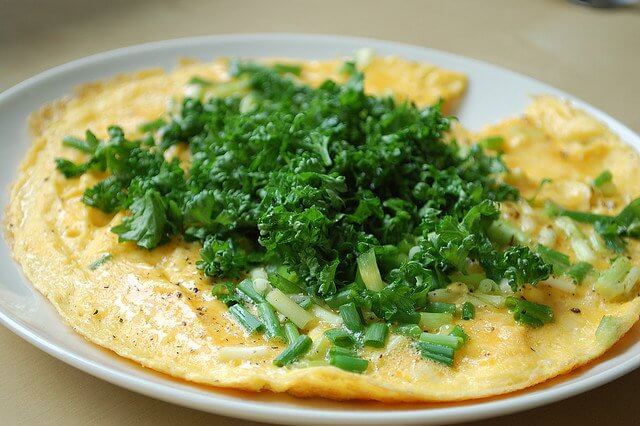How to Treat Intestinal Parasites


Reviewed and approved by the doctor Maricela Jiménez López
There are many different names for intestinal parasites. Known as amoebas, tapeworms, parasites, or worms, they’re a common problem of the gastro-intestinal tract. Would you like to know more about intestinal parasites? If so, keep reading!
Facts about intestinal parasites
The parasites that invade the intestines are grouped in colonies and survive at our expense. They compete for nutrients and food and can cause many problems.
Intestinal parasites can be microscopic or several inches long. The most notable parasites include protozoa or amoebas (which are transmitted through contaminated water), Cryptosporidium (common in people with a weakened immune system, as shown by a study conducted by the University of Mahasarakham), Giardia lamblia (transmitted through food, water, or fecal matter).
The types of worms which can be seen without a microscope include: Ancylostoma (which feed on blood), whipworm (according to this investigation by the University Hospital of Honduras, they affect the intestinal walls, causing anemia), giant roundworm (which can measure up to 30 meters in length and inhabit the small intestine), pinworms (which mainly target children) and tapeworms (caused by consuming contaminated meat, improperly cooked pork, or – according to a study by the Peruvian Cayetano Heredia University – other contaminated foods such as eggs).
What are the causes of intestinal parasites?
This problem can have a number of different causes:
- A weakened immune system.
- Poor food hygiene when preparing food.
- Raw or contaminated food.
- Not washing your hands before eating.
- Eating a diet lacking in nutrients.
- Walking barefoot in infected areas.

What types of symptoms are associated with intestinal parasites?
The following symptoms could by signs of a problem in the digestive system, as stated by The Hospital for Sick Children:
- Anemia.
- General paleness.
- Headaches.
- Stomach cramps.
- Fatigue.
- Weight loss.
- Severe cough.
- Fever.
- Lack of appetite.
- Vomiting.
- Itching around the buttocks or anus.
- Irritable or violent temper.
How to prevent intestinal parasites?
The following suggestions could help you to avoid intestinal parasites:
Have good personal hygiene
Always wash your hands after going to the bathroom, coming inside, touching money, before cooking, or after changing a diaper, among others. Without realizing it, we often infect ourselves with pathogens. According to this study by the National Institute of Pediatrics, good hygiene is fundamental for our health.
Eat a healthy diet
This way your immune system will be strong and you’ll avoid contracting parasites in any of the ways mentioned above. People often recommend eating more vitamin C and A, due to their ability to strengthen the immune system, as shown in this study by the Spanish Centers of Investigation in Nutrition and Health.
Boil water
If you’re not sure how safe your water is – if you’re travelling abroad, for example – it’s a good idea to boil it. If you can’t, drink bottled water and pay close attention to its color and taste.
Wash your food
Especially the items that you eat raw, like fruit and vegetables. Make sure your meat is thoroughly cooked before you eat it.
Natural remedies that may help treat intestinal parasites
If you suspect you might have intestinal parasites, it’s essential that you seek medical attention as soon as possible. As they reproduce rapidly, it’s important to treat them as soon as possible to expel them from your body and to keep them from increasing in size and number. You could follow a detox diet to expel them, but it must be carefully monitored by a specialist.
In these situations, people often advise drinking two liters of water with a few drops of lemon juice every day, and preparing parsley infusions (which should also be taken with two liters of water). However, there is no scientific evidence to support the supposed healing power of this remedy.

Any kind of diet should be prescribed by your GP. Otherwise, it could pose a risk to your health.
Home remedies that may help treat intestinal parasites
None of the following popular home remedies for treating intestinal parasites have been corroborated by any type of scientific study. We do not recommend trying them without first consulting with your doctor.
Recipe 1
Ingredients
- ½ teaspoon thyme. According to a study carried out by the University of La Serena in Chile, it is believed it can be used as an antiparasitic treatment.
- Half a cup of water.
- ½ teaspoon gentian root.
- ½ teaspoon bitter chamomile.
Instructions
- Boil the water with the herbs for 10 minutes.
- Turn off the heat and let sit for 10 more minutes.
- Drink on an empty stomach. Repeat for 10 consecutive days (for children) or 20 days (in the case of adults).

Recipe 2
Ingredients
- 1 handful of peppermint or mint. According to an investigation published in the Cuban Journal of Military Medicine, mint is an antiparasitic.
- 1 liter of water.
- 2 garlic cloves. This ingredient has antimicrobial properties, as stated in a review carried out by the University of Medical Science of Las Tunas, Cuba.
- ¼ cup milk.
Instructions
- Boil the peppermint in the water and strain.
- Mix with the garlic cloves and milk.
- Let cool and drink immediately. This should be consumed before breakfast.
Recipe 3
Ingredients
- 2 tablespoons of pumpkin seeds. According to a study by the West Bayamo Polyclinic in Cuba, pumpkin seeds are an antiparasitic.
- ½ cup warm water (125 ml).
Instructions
- Mix both ingredients and drink on an empty stomach.
Recipe 4
Ingredients
- ¼ cup milk (62 ml)
- 4 squash seeds. According to a study published in the Peruvian Journal of Gastroenterology, squash seeds can also act as an antiparasitic.
Instructions
- Grind the seeds and mix with the warm milk.
- Drink before breakfast for one week.
Recipe 5

Ingredients
- 2 cups (500 ml) of extra virgin olive oil
- 2 ounces of dried wormwood. This can also act as an antiparasitic, according to the study by the University of La Serena mentioned earlier in this article.
Instructions
- Place the ingredients in a dark glass sealed container and soak for 10 days.
- Once ready, take two teaspoons on an empty stomach every day.
These simple infusions are popular home remedies for treating intestinal parasites. However, it’s important to remember that consulting with your doctor is always the first step to treating any medical condition, and can help to prevent more serious complications.
All cited sources were thoroughly reviewed by our team to ensure their quality, reliability, currency, and validity. The bibliography of this article was considered reliable and of academic or scientific accuracy.
- Cooper, P. J. (2004). Intestinal worms and human allergy. Parasite Immunology. https://doi.org/10.1111/j.0141-9838.2004.00728.x
- Elliott, D. E., & Weinstock, J. V. (2012). Where are we on worms? Current Opinion in Gastroenterology. https://doi.org/10.1097/MOG.0b013e3283572f73
- Quinlan, M. B., Quinlan, R. J., & Nolan, J. M. (2002). Ethnophysiology and herbal treatments of intestinal worms in Dominica, West Indies. Journal of Ethnopharmacology. https://doi.org/10.1016/S0378-8741(02)00002-8
- Kaminsky, R. G., Renato, C. y Abrego Flores, C. (2015). Growth retardation and severe anemia in children with Trichuris dysenteric síndrome. Asian Pacific Journal of Tropical Biomedicine, 5(7), 591-597. https://doi.org/10.1016/j.apjtb.2015.05.005
This text is provided for informational purposes only and does not replace consultation with a professional. If in doubt, consult your specialist.








